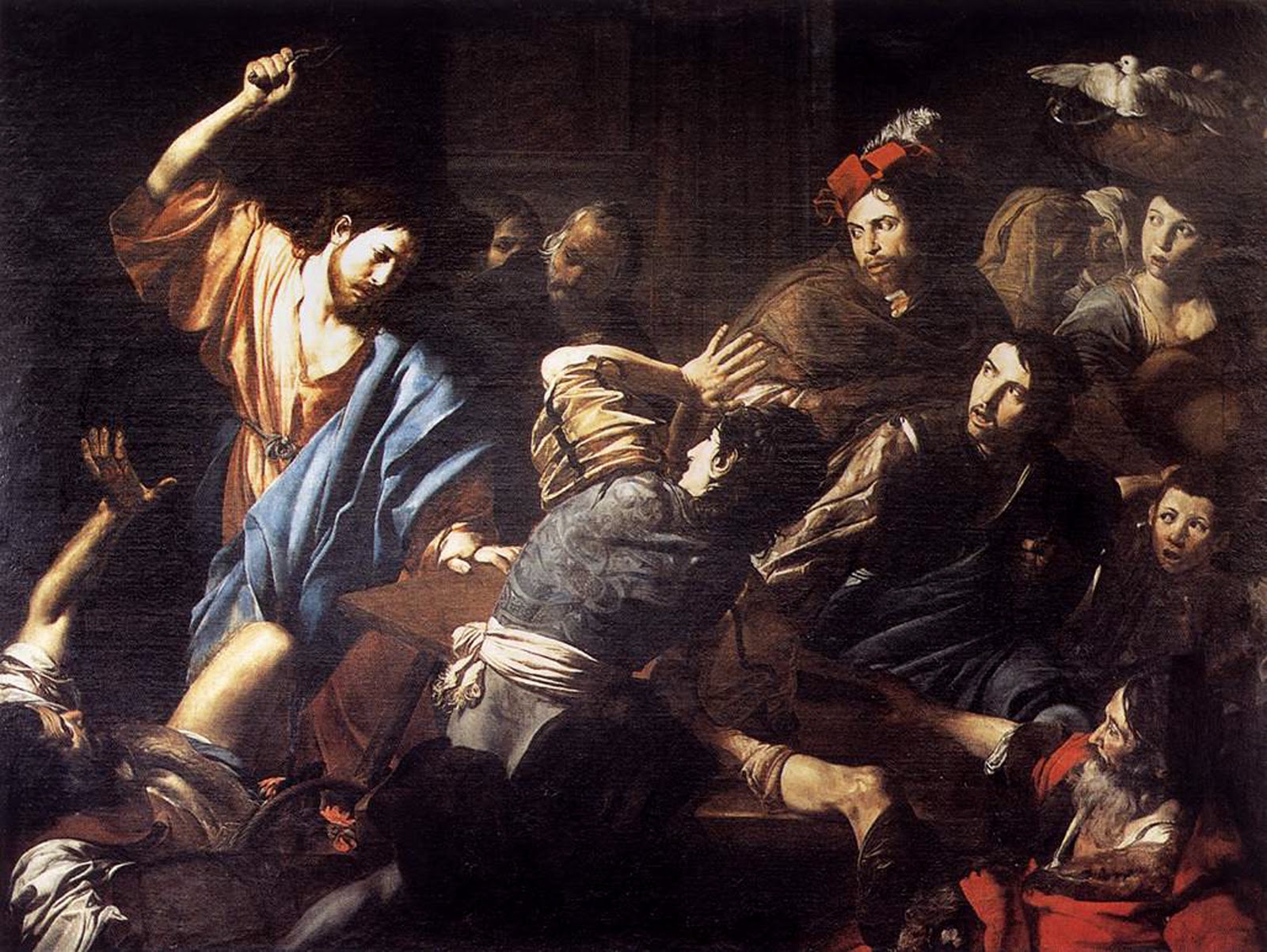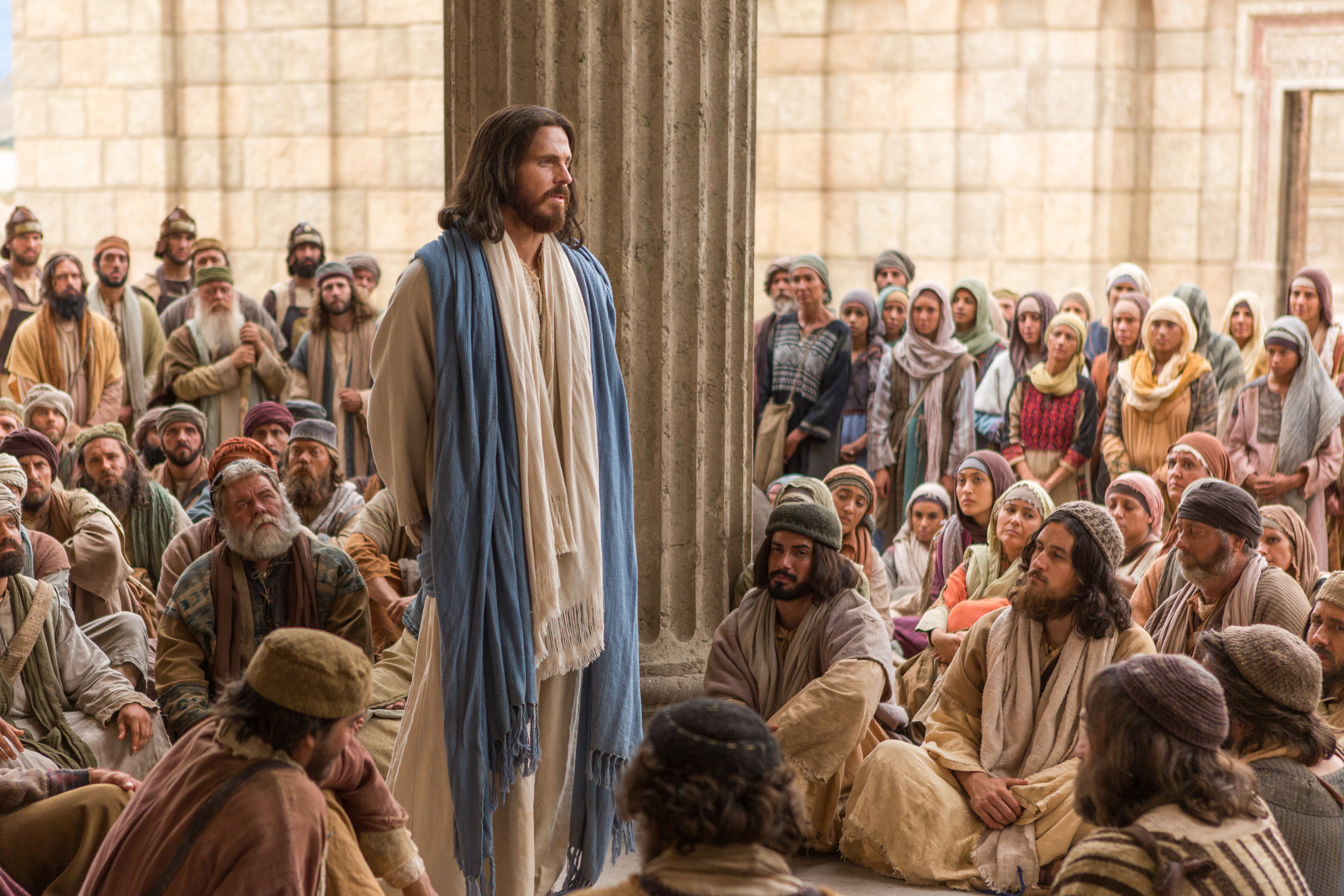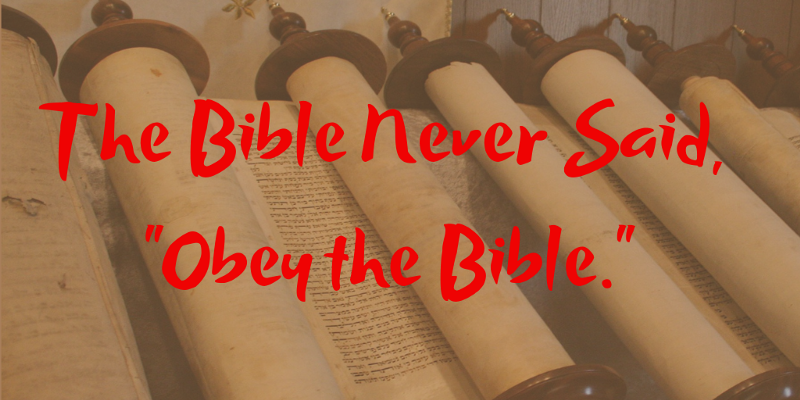
In the kingdom of God, there’s only one seat on the throne.
In “One Seat on the Throne,” Alex, Kent, and Nathan look at God’s plan for leadership under the gospel and conclude that God doesn’t need human control to protect his people.
“One Seat on the Throne” – Episode Notes:
It may sound strange to talk about letting God rule. Is he not sovereign over his creation? Doesn’t he have the wisdom to hand down righteous decrees and the power to enforce them? Won’t he eventually call all people to account?
God rules creation and orchestrates history, but he won’t force anyone under his reign. We won’t experience his rule in our lives until we submit ourselves to him – until we let him rule. Any despot can make people conform but God is no despot. He deserves the job of universal ruler, but he won’t impose his will on the unwilling. This is true of individuals and groups. The gospel invites individuals under God’s reign, but it also grants them the opportunity to reject him. The Holy Spirit has come to guide the church, but we can grieve, quench, and despise his leading.[i]
If it’s up to us to let God rule, how can we ensure that’s what we do?
Since we are realized Israel, let’s look to the history of our nation to learn how God wants to rule his kingdom.
“I will restore your judges.”
Do you remember that time Israel deposed God in a coup?
So all the elders of Israel gathered together and came to Samuel at Ramah. They said to him, “You are old, and your sons do not follow your ways; now appoint a king to lead us, such as all the other nations have.”
But when they said, “Give us a king to lead us,” this displeased Samuel; so he prayed to the LORD. And the LORD told him: “Listen to all that the people are saying to you; it is not you they have rejected, but they have rejected me as their king. As they have done from the day I brought them up out of Egypt until this day, forsaking me and serving other gods, so they are doing to you.” (1 Samuel 8:4-8 NIV)
Israel’s demand for a king wasn’t just a rejection of Samuel or even of the office of judge which Samuel held, it was a rejection of God as their king. God responded to this insult by agreeing to give them a king. This exchange demonstrates God’s insistence that people obey him willingly.
God told Samuel that Israel had rejected him as king from the day he brought them out of Egypt. God became Israel’s king through the defeat of Pharaoh and his gods. At Mount Sinai he declared them a kingdom of priests and a holy nation, his own treasured possession. He gave them his law. He provided for their needs. His Presence remained among them to guide them and to enforce his law. He put his Spirit on Moses to empower and enable him to serve as a judge among them. When the job got too big for Moses, God took some of the Spirit that was on him and distributed it among seventy(two) elders[1] who then judged Israel with him. This was God’s administration over his own kingdom.
This governmental structure continued in Israel as they entered the land of promise. God’s Presence went ahead of them as the Commander of the LORD’s Army[ii] to conquer the land. His provision changed from manna to the produce of the land. By his Spirit, he enabled Joshua to succeed Moses as leader of the people. Neither Moses nor Joshua took the title of king because God continued to rule as king over Israel. Moses and Joshua served as stewards in God’s kingdom.[iii] They moved under God’s explicit instructions and wielded his power to carry out his will.
After the death of Joshua, the Messenger of God’s Presence continued to rule as king in Israel. In the book of Judges, we find him walking around in Canaan rebuking the nation from a mountain top, accosting Gideon from under an oak tree, setting stuff on fire, telling a woman how to raise her kid, and hitching a ride on a plume of smoke. He enforced his law directly by raising up the nations in the land to punish Israel. Once the nation learned its lesson, God’s Spirit empowered judges to deliver them from their oppressors. It was a time of miracles and personal freedom, but that freedom proved too much for Israel to bear.
By the end of the book of Judges we find the nation on the brink of total collapse resulting from sin’s corrosive influence. God’s call was to each person to fear him and obey his law. In this way they could live together in peace with no need to be controlled by earthly leaders. But Israel was still made up of fallen people. Through two horrific tales of religious and moral degradation we find the refrain, “There was no king in Israel and everyone did what was right in his own eyes.” God had set his people free, but their rebellious hearts turned that freedom into anarchy. God gave them a king at their request because each person’s rejection of him as their personal king was destroying the nation.
I think it’s noteworthy that once God gave Israel their king, he stopped appearing bodily in Israel as the Messenger of Yahweh. God had ruled directly as king in Israel from the time of Moses through the era of the judges. All the while Israel had resisted God’s reign, so he gave them a human king according to their request. This wasn’t God’s first choice for them because he knew that power corrupts and that nearly all their kings would mislead the nation. It was to a corrupt kingdom of Israel that Isaiah penned these words:
Your princes are rebels
and companions of thieves.
Everyone loves a bribe
and runs after gifts.
They do not bring justice to the fatherless,
and the widow’s cause does not come to them.
Therefore the Lord declares,
the LORD of hosts,
the Mighty One of Israel:
“Ah, I will get relief from my enemies
and avenge myself on my foes.
I will turn my hand against you
and will smelt away your dross as with lye
and remove all your alloy.
And I will restore your judges as at the first,
and your counselors as at the beginning.
Afterward you shall be called the city of righteousness,
the faithful city.” (Isaiah 1:23-26 ESV)
God would remediate Israel’s corruption by resuming his role as king in a return to the era of the judges. I believe that era has commenced with the exaltation of Christ and the outpouring of the Holy Spirit.
Our God Reigns
Jesus promised that some in his audience would see the kingdom of God come with power.[iv] On the day of Pentecost that promise was fulfilled. In Christ, God has resumed his direct reign over his people. Like in the era of the judges, Christ, the Messenger of Yahweh lives among us. Unlike the era of the judges Christ also lives within us. Like in the era of the judges, God has given his law. Unlike that time, this law is written on our hearts by his own Spirit. As under the Moses, Joshua, and the judges God personally punishes wrongdoers like Ananias and Saphira.[v] And true to his word he has restored Spirit-empowered ad hoc leaders, judges, over his people.
Judges aren’t kings. They have spiritual authority instead of positional authority. Just like Gideon’s leadership was contingent on the power of God or Deborah’s on her ability to prophesy, so Paul based his authority on God’s power at work in him. Consider Paul’s leadership credentials in the following passage:
I have made a fool of myself, but you drove me to it. I ought to have been commended by you, for I am not in the least inferior to the “super-apostles,” even though I am nothing. I persevered in demonstrating among you the marks of a true apostle, including signs, wonders and miracles. (2 Corinthians 12:11-12 NIV)
But what if some despised his authority or what if they were rebellious? How could Paul as God’s regent enforce his word?
I already gave you a warning when I was with you the second time. I now repeat it while absent: On my return I will not spare those who sinned earlier or any of the others, since you are demanding proof that Christ is speaking through me. He is not weak in dealing with you, but is powerful among you.
This is why I write these things when I am absent, that when I come I may not have to be harsh in my use of authority—the authority the Lord gave me for building you up, not for tearing you down. (2 Corinthians 13:2-3, 10 NIV)
Paul didn’t have or need organizational endorsement. His suffering for Christ and the power of the Spirit were his credentials. As Christ’s duly appointed representative, he warned them that if they didn’t repent, he would once again demonstrate Christ’s power to punish their wrongs. He didn’t need a majority vote to carry out church discipline because Christ had given him authority and Christ would do the disciplining.
It’s important that we acknowledge the only legitimate authority in God’s kingdom is that which flows powerfully from Christ. As his Spirit-enabled leaders wield that authority he remains king and they are spared the corruption that comes with office. In the era of the judges a person didn’t need to wonder whether God endorsed the judge. The evident power of God with them was his endorsement. This system is self-regulating as Paul wrote, “For we cannot do anything against the truth, but only for the truth.” (2 Corinthians 13:8 NIV)
Lest we think Paul and the other apostles possessed a unique leadership dispensation, we should consider that Paul expected other would-be leaders to put their power where their mouth is.
Some of you have become arrogant, as if I were not coming to you. But I will come to you very soon, if the Lord is willing, and then I will find out not only how these arrogant people are talking, but what power they have. For the kingdom of God is not a matter of talk but of power. What do you prefer? Shall I come to you with a rod of discipline, or shall I come in love and with a gentle spirit? (1 Corinthians 4:18-21 NIV)
God’s promise through Isaiah to restore the judges was a promise to resume direct reign over his kingdom. Kings command; but judges minister. Paul’s authority came from the power of the Holy Spirit. He didn’t expect other people to defer to him based on his title but on his work. He was an apostle because God had empowered him to perform that role. Leaders in the kingdom of God don’t resort to positional authority to make God’s people obey them. They minister their God-given gifts to feed and protect God’s flock.
The ancient judges were empowered by God to serve their generation and not to build a dynasty. Christ rules his kingdom and will never pass it on to another, so leadership succession has been done away. We have the same Holy Spirit today as Paul or Peter or James did. What possible need could we have for “apostolic succession”? We can certainly benefit from the gifting of those men through reading the New Testament, but we shouldn’t allow their rulings to set timeless precedent while the king continues to reign in our midst. We have the gospel which is the very spirit of prophecy.[vi] Can it not teach us something for today? Might God not raise up Spirit-empowered teachers and prophets to share mighty truths for our generation? We want to borrow authority from the apostles, but the source of their authority belongs to us today.
Let me be very clear. Every hierarchical church, denomination, association, or alliance is an affront to God’s kingdom reign. They arise from the same faithlessness that caused Israel to ask for a king. They traffic in contrived authority which they generate, define, and celebrate according to the rudimentary principles of this world. “Let us build,” they say, “and make a name for ourselves. Lest all our progress die with our generation and our legacy be scattered to the wind.”
Someone might defend Christian institutions by pointing to the need to defend the church from heresy. That thinking supposes God needs our help to defend his gospel.
A great house with a firm foundation
When the Reformers elevated the Bible to the place of final authority in place of the Catholic hierarchy, the Christian movement immediately began to fracture. Differing interpretations became the bases for various sects. To combat this proliferation of Christian variants they codified their biblical interpretations into creeds and catechisms. Sects trained new leaders in their version of orthodoxy. Those leaders were then ordained to indoctrinate their parishioners in the same. In this system, everyone must be told in detail what to believe. The transition from church authority to biblical authority produced yet another form of ecclesiastical control. Inclusion required conformity. Dissent brought expulsion.
While the authors of the New Testament seem to have been concerned about heresy, their methods indicate a different perspective on protecting orthodoxy. For instance, leaders who took upon themselves to throw doctrinal dissenters out of the Christian community were seen as unorthodox. Diotrephes was such a leader and John censured him for his actions:
I wrote to the church, but Diotrephes, who loves to be first, will not welcome us. So when I come, I will call attention to what he is doing, spreading malicious nonsense about us. Not satisfied with that, he even refuses to welcome other believers. He also stops those who want to do so and puts them out of the church. (3 John 10-11 NIV)
John certainly took exception to Diotrephes’ slander, but he counted his top-down control of church membership the greater offense. By way of contrast, consider Paul’s response to reports of factions in the Corinthian church:
But in the following instructions I do not commend you, because when you come together it is not for the better but for the worse. For, in the first place, when you come together as a church, I hear that there are divisions among you. And I believe it in part, for there must be factions among you in order that those who are genuine among you may be recognized. (1 Corinthians 11:17-19 ESV)
Paul never attempted to control the composition of any congregation. In this time before the return of Christ we long for unity and work toward it, but we also know that divisions will persist. Because God is sovereign even factions will come to serve his greater purpose. They will serve as a backdrop to highlight the glory of his gospel. The heretics and hypocrites in the church have job to do as well. Consider how Paul depicts the purpose of even false believers in God’s household:
Avoid godless chatter, because those who indulge in it will become more and more ungodly. Their teaching will spread like gangrene. Among them are Hymenaeus and Philetus, who have departed from the truth. They say that the resurrection has already taken place, and they destroy the faith of some. Nevertheless, God’s solid foundation stands firm, sealed with this inscription: “The Lord knows those who are his,” and, “Everyone who confesses the name of the Lord must turn away from wickedness.”
In a large house there are articles not only of gold and silver, but also of wood and clay; some are for special purposes and some for common use. Those who cleanse themselves from the latter will be instruments for special purposes, made holy, useful to the Master and prepared to do any good work. (2 Timothy 2:16-21 NIV)
Notice that even though Paul doesn’t mince words about the status of these false teachers he also assumes that they and their ilk will be present in the church. Not only will they be present but God has placed them there and has a place for them there. One of the greatest challenges to letting go of biblicism to follow the gospel standard has always been the fear of heresy. Paul could live above a prescriptive, written standard because he didn’t entertain the pretense that he had the power or even the right to extinguish heresy. Paul knew that Christ was on the throne and there was only one seat there. That’s still true today. If we find false teachers among us, we surely can’t believe it’s because Christ needs us to remove them. We must commit to submitting to his kingdom authority over our own lives and over the life of the church.
[1] In Numbers 11:10-30 God called out seventy elders to share the burden of leadership with Moses. When he poured out his Spirit on them, they all prophesied. In addition to those seventy, another two prophesied in the camp.
[i] Verses on don’t grieve or quench the Spirit and not to despise prophecy
[ii] Joshua 5:13-15
[iii] Numbers 12:7
[iv] Mark 9:1
[v] Acts 5:1-9
[vi] Revelation about the gospel is the spirit of prophecy.










